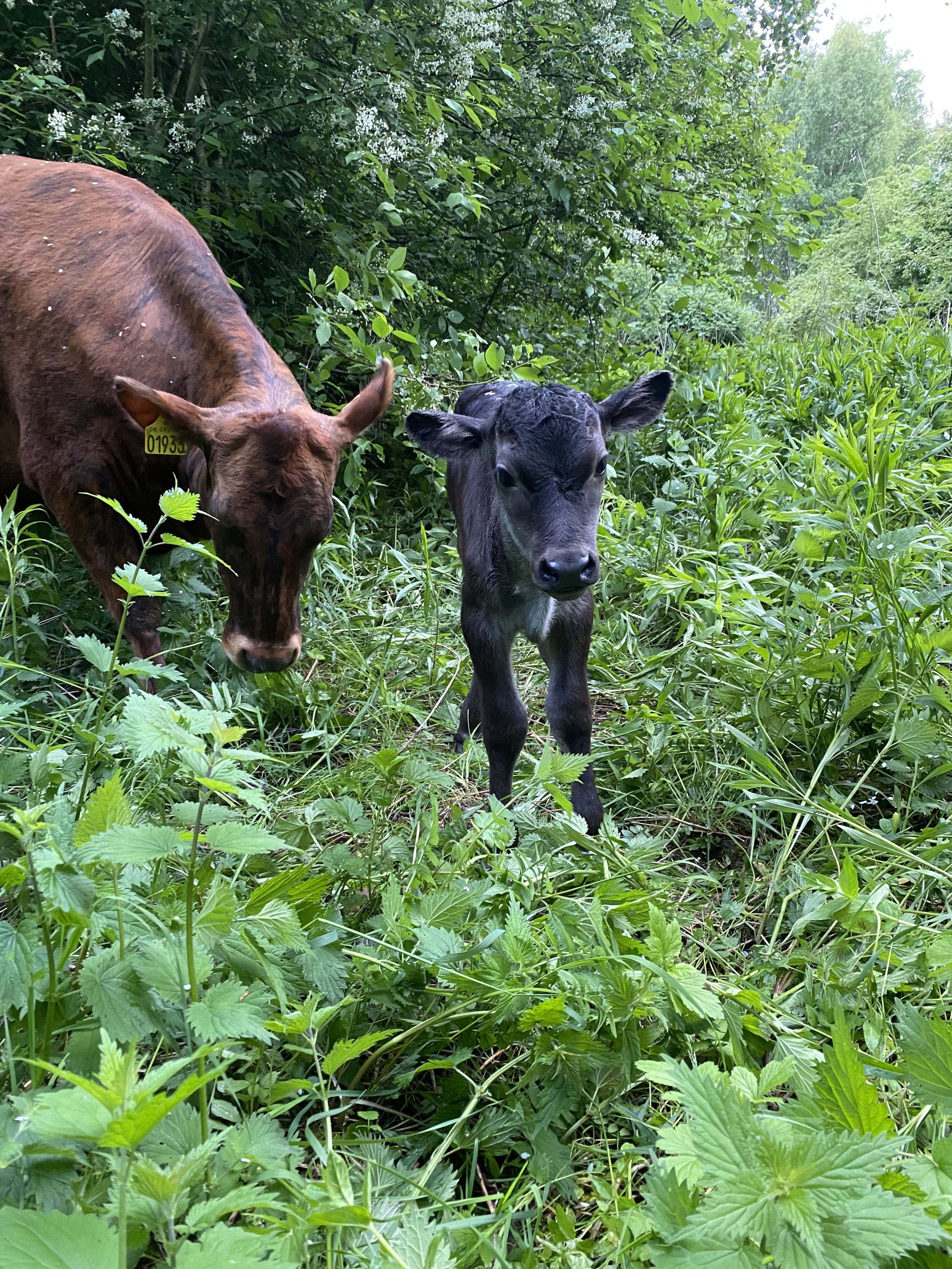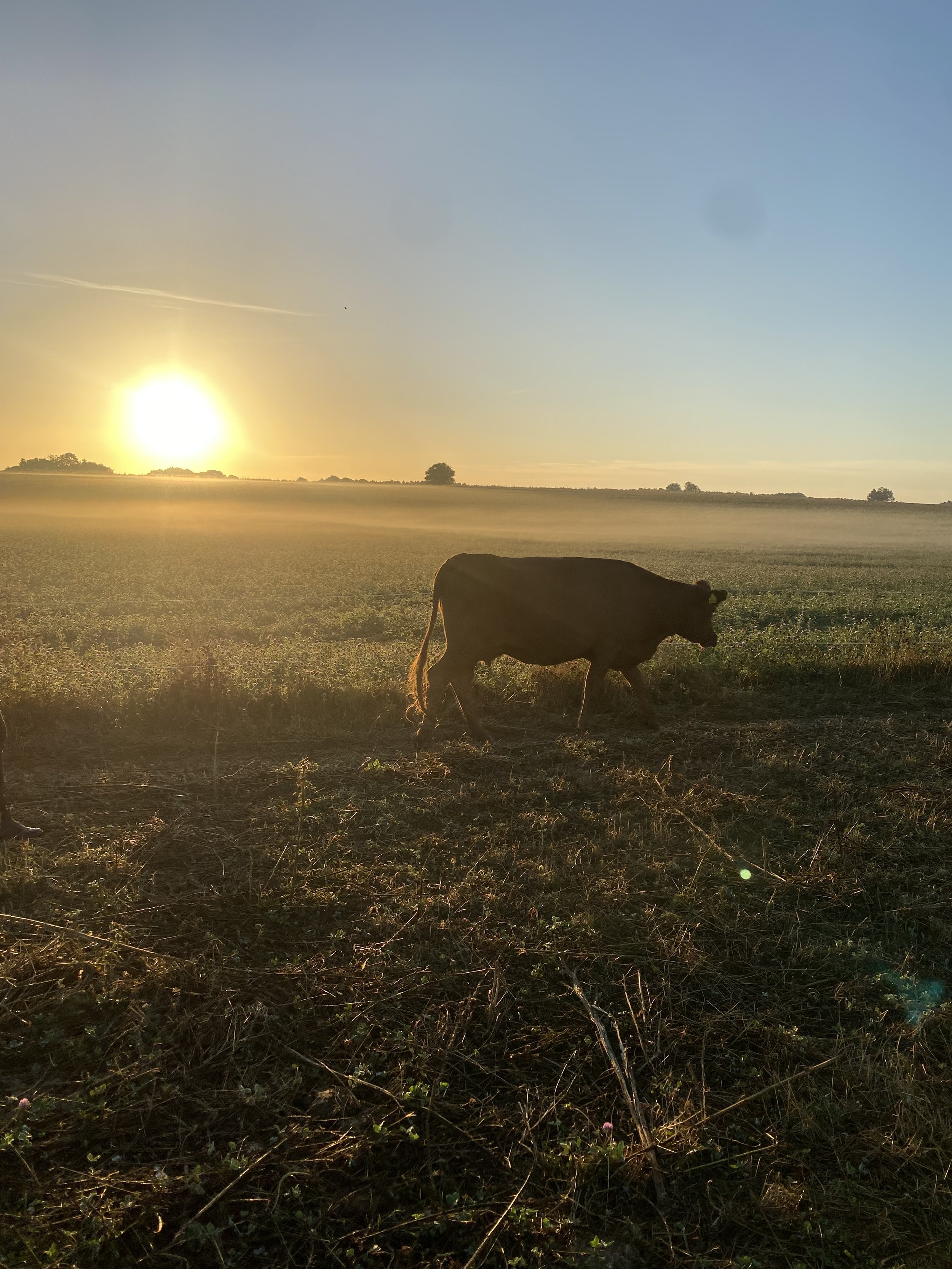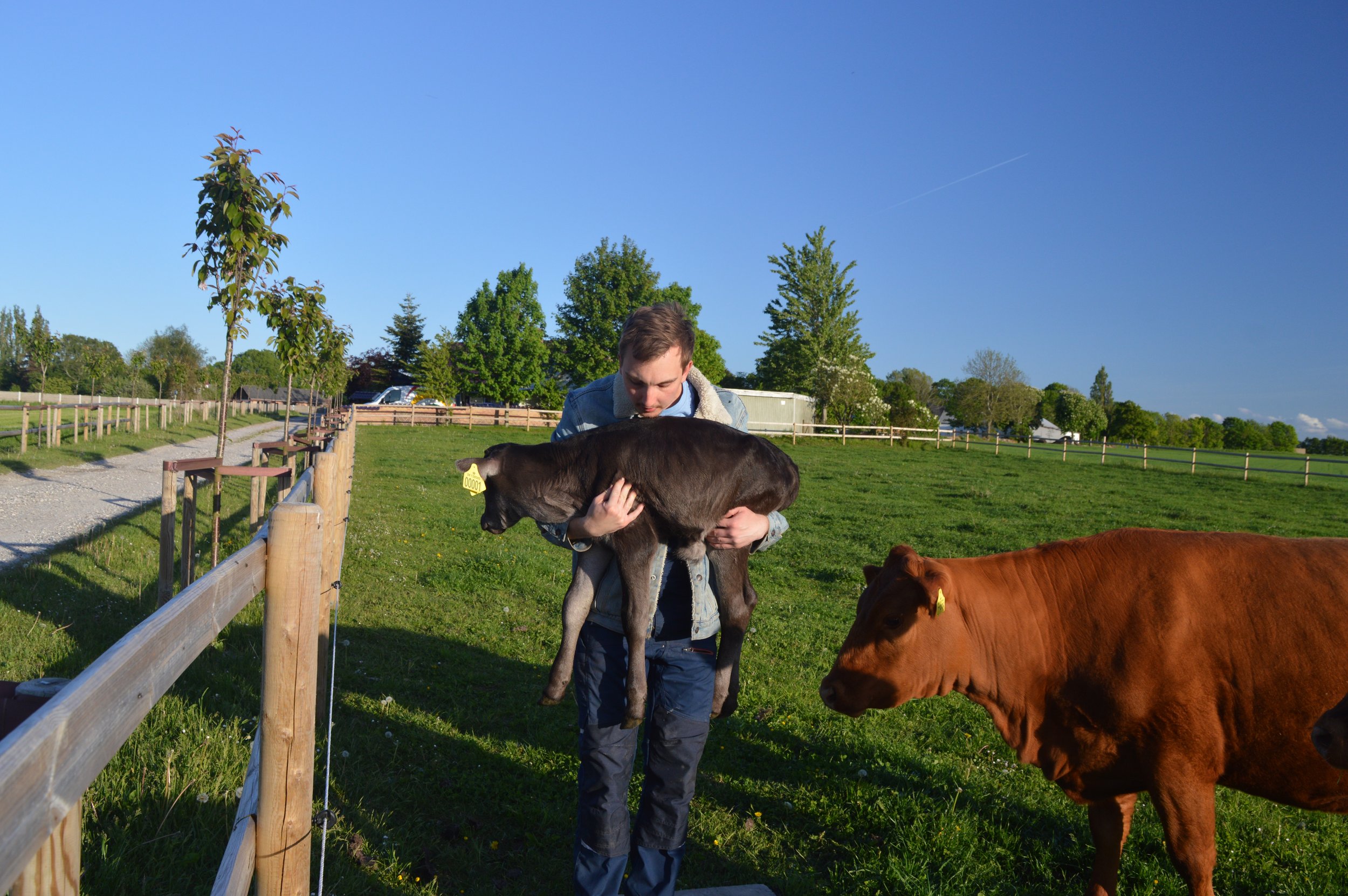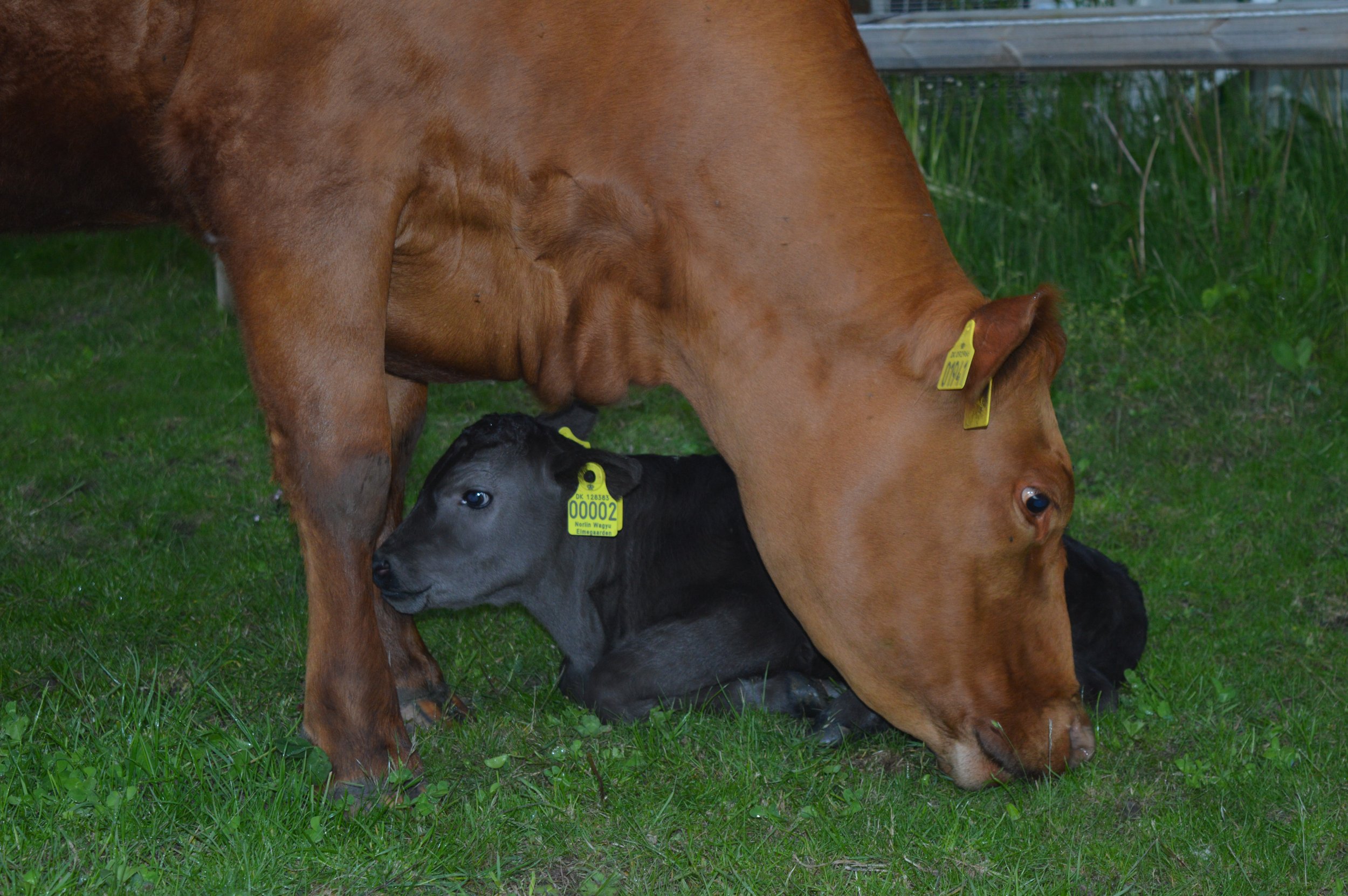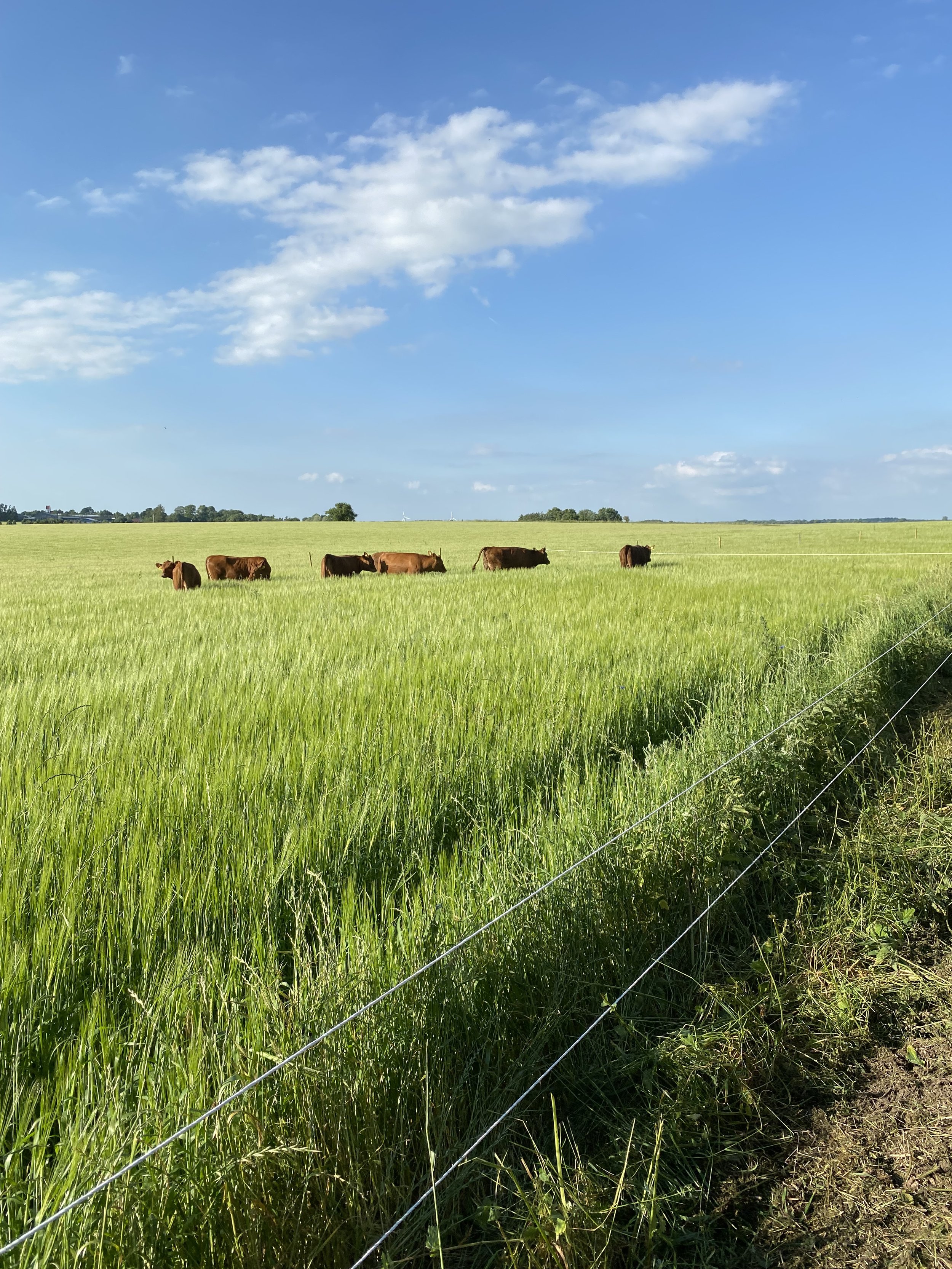Norlin Wagyu
100 % Fullblood Wagyu in highest quality.
Breeding
Breeding good and healthy wagyu animals are a top priority for us. That means we use all information available to us at any given moment. We use genomics via the Australian wagyu herdbook. We spend hours and hours looking through bloodlines. To try and improve each animal to the purpose we breed it for, that being as a long-lasting female, a bull that makes small calves, big carcasses, high marbling, or any other trade that’s important for the purpose.
Maternal lines
In wagyu maternal lines are sometimes underrated. We all like to look at the bulls chasing the new hot thing. But it’s the females that are the backbone of any operation. Milk and maternal capability are equally important as the bull if not more. Cows transmit their ability to their offspring directly.
Besides the fact that a proven cow makes for so much higher reliability. Therefore we look a lot at the maternal lines and make sure to take all 100% of the genetics in to count and not just the top 50%
Farming with nature
We keep our animals outside all year round. We believe it’s better for animals to be in nature. They have access to woods and a shelter. That also means most calves are born outside, which gives them a toughness, that makes them strive in the long run.
We do rotational grazing, to maximize health benefits for the soil and the grass. It gives us a better grazing season.
